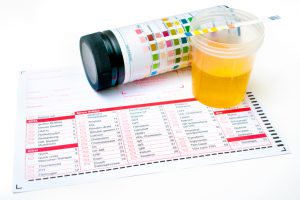 Zinc is an essential mineral that is found in each cell of your body. It is involved in nearly every biochemical and physiological process, and is clearly an important mineral in maintaining good health. But can too much of a good thing be harmful?
Zinc is an essential mineral that is found in each cell of your body. It is involved in nearly every biochemical and physiological process, and is clearly an important mineral in maintaining good health. But can too much of a good thing be harmful?
According to a new study published in the Journal of Urology, too much zinc supplementation can cause problems in the urinary system.
Dr. Aaron R. Johnson and colleagues from the University of Wisconsin, Madison, did a secondary analysis of data from a trial involving 3,640 adults between the ages of 55 and 83. The participants all suffered from macular degeneration. As treatment for their eye condition, the subjects were divided into groups and given different treatments, including: daily antioxidant therapy with vitamin C; vitamin E and beta-carotene; 80 milligrams of zinc daily; antioxidants and zinc, in combination; or placebo supplements.
It was found in the secondary analysis that there was a significant increase in hospital admissions due to urinary tract infections and urinary stones in patients taking the zinc formula. The study also concluded that there was no preventive effect for cancer of the urinary system from high-dose zinc supplementation.
Researchers also noted that consuming large amounts of zinc over an extended period of time could cause anemia, nervous system disorders, damage to the pancreas, and lowered levels of LDL cholesterol, or the ‘good’ cholesterol.
These conclusions may be troublesome if your zinc levels are low and you require supplementation. It is actually quite common for seniors to develop a zinc deficiency due to malabsorption, physiologic stress, trauma, muscle wasting, and the use of prescription and over-the-counter medications.
Plus, when you are zinc deficient, you may experience a weakened immune system, dermatitis, loss of taste, loss of your sense of smell, and impaired wound healing. So what can you do to make sure your zinc levels are adequate, but not too high?
The Recommended Daily Allowance (RDA) for zinc is 15 mg for adult men and 12 mg for adult women. The best way to meet this optimum allowance is to include zinc-rich foods in your diet. You may want to try and avoid supplementation.
Foods high in zinc include meat, poultry, beans, nuts, dairy products, and oysters (which contain the most zinc, by weight, than other foods).
One other thing to consider: The phosphorus compounds found in wholegrain cereals and unleavened bread can significantly decrease your body’s absorption of zinc.
